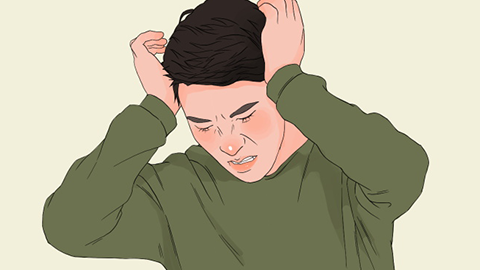What causes a throbbing headache?
Generally, pulsating headaches in the head may be caused by mental tension and stress, unhealthy lifestyle habits, tension-type headaches, migraines, cervical spondylosis, and other factors. Symptomatic management through general treatments, medications, and other methods is usually required. If discomfort occurs, it is recommended to seek timely medical attention and undergo appropriate treatment under a doctor's guidance. A detailed explanation is as follows:

1. Mental Tension and Stress
Long-term work-related stress and excessive mental tension may stimulate the brain's nerves, leading to dysfunction in cerebral blood vessel dilation and constriction, thereby causing episodic headaches. These headaches may be accompanied by symptoms such as anxiety, irritability, and insomnia. It is recommended to maintain a cheerful mood, avoid excessive anxiety and tension, and engage in relaxation techniques such as deep breathing and yoga.
2. Unhealthy Lifestyle Habits
Long-term熬夜 (staying up late), irregular作息 (sleep-wake cycles), and excessive smoking or drinking can affect the body's normal metabolism and immune function, potentially leading to headaches. Symptoms may also include fatigue, difficulty concentrating, and decreased immunity. It is recommended to improve lifestyle habits and maintain a regular sleep schedule to help alleviate symptoms.
3. Tension-Type Headache
Tension-type headaches are associated with muscle tension, stress responses, and central nervous system sensitization. Prolonged mental stress, muscular tension, or poor posture can trigger this type of headache. The pain is typically bilateral and feels like a tight band around the head. It may be accompanied by tension in the neck and shoulder muscles. It is recommended to follow medical advice and use medications such as aspirin enteric-coated tablets, ibuprofen tablets, or amitriptyline hydrochloride tablets to relieve symptoms.
4. Migraine
Migraines are related to abnormal neuronal activity and blood vessel dilation in the brain. During a migraine attack, neural pathways in the brain are activated, causing blood vessel dilation and inflammatory responses that lead to headache. Symptoms may also include nausea, vomiting, photophobia (sensitivity to light), and phonophobia (sensitivity to sound). It is recommended to use medications such as indomethacin tablets, nimodipine tablets, or compound propranolol caffeine tablets under medical guidance for treatment.
5. Cervical Spondylosis
Compression or inflammatory reactions of nerve roots caused by cervical spondylosis may lead to pulsating headaches. When intervertebral discs protrude or bone spurs press on nerve roots, symptoms such as pain, numbness, and muscle weakness may occur. These may be accompanied by neck pain, arm numbness, or weakness. It is recommended to use medications such as chlorzoxazone tablets, eperisone hydrochloride tablets, or sodium naproxen tablets under medical guidance to alleviate symptoms.
When experiencing pulsating headaches, it is recommended to immediately rest in a quiet and comfortable environment and avoid exposure to bright lights and loud noises, which can help relieve the pain.





